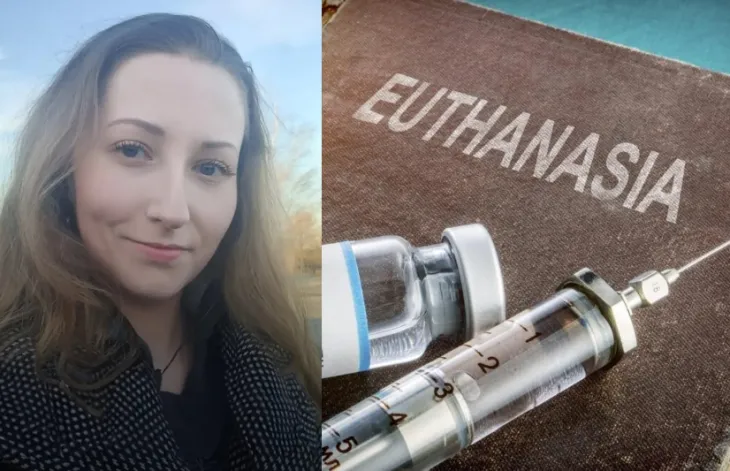A physically healthy, 28-year-old Dutch woman has decided to legally end her life due to her struggles with crippling depression, autism and borderline personality disorder, according to a report.
Zoraya ter Beek, who lives in a small village in the Netherlands near the German border, is scheduled to be euthanized in May — despite being in love with her 40-year-old boyfriend and living with two cats.
Ter Beek, who once aspired to be a psychiatrist, has been dealing with mental health struggles throughout her life.
She said she decided to be euthanized after her doctors told her, “There’s nothing more we can do for you. It’s never gonna get any better,” according to the Free Press.
“I was always very clear that if it doesn’t get better, I can’t do this anymore,” ter Beek said.
She is just one of the growing number of people in the West who have decided to die rather than continue living in pain that, unlike a terminal illness, could be treated.
More people are deciding to end their lives while suffering from a slew of other mental health problems like depression or anxiety amplified by economic uncertainty, climate change, social media and other issues, the Free Press reported.
“I’m seeing euthanasia as some sort of acceptable option brought to the table by physicians, by psychiatrists, when previously it was the ultimate last resort,” Stef Groenewoud, a health care ethicist at Theological University Kampen, in the Netherlands, told the outlet.
“I see the phenomenon especially in people with psychiatric diseases, and especially young people with psychiatric disorders, where the health care professional seems to give up on them more easily than before,” she added.
Ter Beek plans to be cremated after she’s euthanized on the couch in her living room.
“No music,” she said.
A doctor will first give her a sedative, followed by a drug that will stop her heart. Her boyfriend will be at her side until the end.
“The doctor really takes her time. It is not that they walk in and say, ‘Lay down, please!’ Most of the time it is first a cup of coffee to settle the nerves and create a soft atmosphere,” she said.
“Then she asks if I am ready. I will take my place on the couch. She will once again ask if I am sure, and she will start up the procedure and wish me a good journey. Or, in my case, a nice nap, because I hate it if people say, ‘Safe journey.’ I’m not going anywhere.”
There will not be a funeral. Ter Beek, who does not have much family, said her boyfriend will scatter her ashes in “a nice spot in the woods” that they have picked out.
“I’m a little afraid of dying, because it’s the ultimate unknown,” she said.
“We don’t really know what’s next — or is there nothing? That’s the scary part.”
The Netherlands became the first country in the world to make assisted suicide legal in 2001.
Since then, it’s become an increasingly popular option.
In 2022, there were 8,720 euthanasia deaths in the Netherlands — representing roughly 5% of all the country’s deaths and up from 4% from the year prior, according to Dutch media.
In February, the 93-year-old former Dutch Prime Minister Dries van Agt and his wife died hand in hand by euthanasia.



